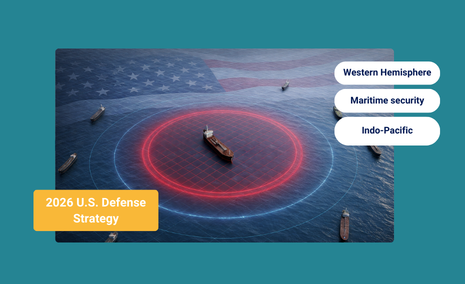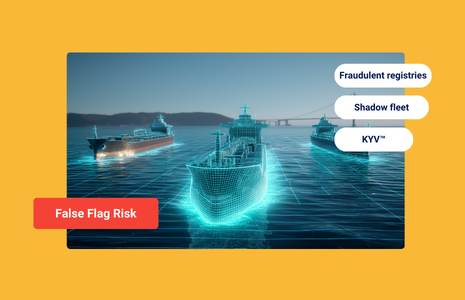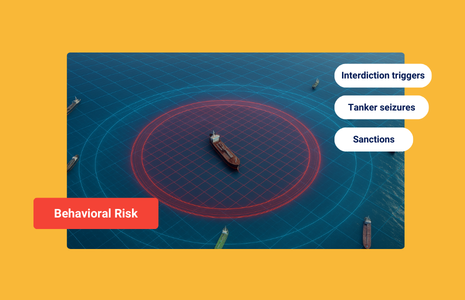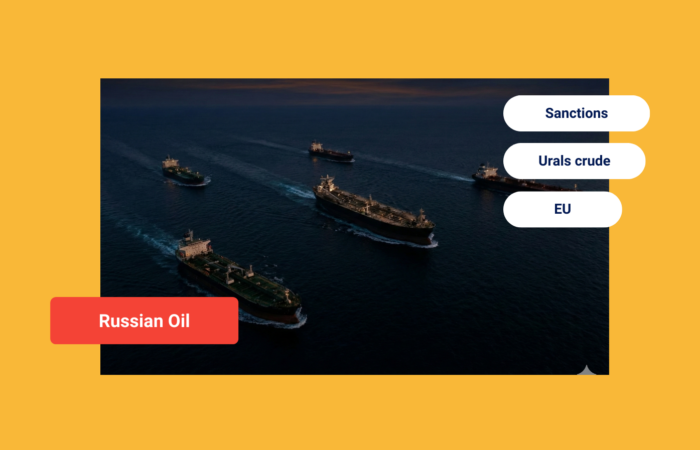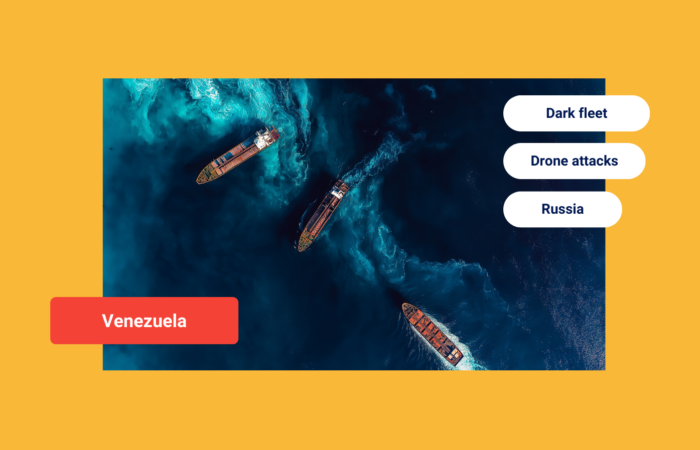OFAC’s Bold Move to Disrupt Russian Energy Exports

What’s inside?
The U.S. Treasury’s Office of Foreign Assets Control (OFAC) has issued sweeping sanctions against over 180 vessels and 170 companies connected to Russian energy exports, shadow fleet operations, maritime insurance, and oilfield services.
These actions are part of a broader effort to disrupt Russia’s revenue streams and target networks that enable sanctions evasion. The implications are vast, impacting global shipping, energy markets, and compliance requirements across the maritime industry.
Let’s take a look at the impact, as well as some key risk insights from Windward’s Maritime AI™ platform.
Casting a Wide Net: Understanding the Sanctions
This latest round of sanctions goes beyond targeting individual actors. It sends a clear message to intermediaries: enabling sanctioned activities carries serious consequences.
In addition to the mass sanctioning of both vessels and entities, the scope of actions under Executive Order 14024 has been further expanded with a new determination: enabling OFAC to sanction any entity operating in Russia’s energy sector.
“The U.S. Departments of the Treasury and State are implementing G7 commitments to reduce Russian energy revenues. A new determination under E.O.14024 authorizes sanctions on anyone operating in Russia’s energy sector, targeting revenue from oil exports used to fund the war in Ukraine and other harmful activities.”
This new addition takes the G7 pressure beyond the price cap restrictions on the sale of products above the price cap, and broadens the scope to the general export of Russian oil.
The impact of this extended focus is:
- Shadow fleet operations: many vessels operate under lesser-known flags of convenience, conducting ship-to-ship transfers to obscure the origin of Russian oil. These activities are now squarely in OFAC’s crosshairs.
- Opaque traders: companies such as Black Pearl Energy Trading LLC have been sanctioned for allegedly helping Russia bypass price caps, reinforcing OFAC’s commitment to curbing evasive practices.
- Russian-owned vessels: state-linked operators, such as Gazpromneft Marine Bunker and Rosnefteflot, face direct sanctions, disrupting Russia’s oil export infrastructure.
- Oilfield services: sanctions on dozens of drilling, exploration, and well service providers aim to weaken Russia’s energy production capabilities over the long term.
These measures are particularly notable for their timing, directly preceding the new term of the incoming American president, underscoring their political and economic significance.
Risk Insights: What Windward’s Data Reveals
Here are key insights you should know:
- Predictive risk insights: Windward had already flagged 84% of the sanctioned vessels as risky prior to their designation, with 41% identified in 2024 alone. 96% of all vessels that were mentioned to be part of the shadow fleet by OFAC were already flagged by Windward’s dark/gray fleet model.
- Beneficial ownership locations: nearly half (46.2%) of the sanctioned vessels are Russian-owned, with additional ownership concentrated in the UAE, Hong Kong, and China.
- Class breakdown: most sanctioned vessels are tankers (88.2%), with crude oil tankers making up the majority – showing the wet commodity focus of the regulators
- Deceptive shipping practices:
- Over 15 vessels engaged in more than 30 location (GNSS) manipulations since 2023, primarily in the Arabian Gulf and near Venezuela.
- Over 120 vessels conducted 655 dark activities in 2024, with a marked increase toward the end of the year.
- Operational routes: many vessels operate between Russia and China, Turkey, or India, frequently passing through the Mediterranean, Suez Canal, and the Red Sea.

Implications for Russia and the Global Trade Industry
For Russia, these sanctions represent a significant escalation in economic pressure. According to the Centre for Research on Energy and Clean Air (CREA), Russia generated EUR 177 billion in revenue from seaborne crude oil and products in 2024, with nearly half of this oil transported by a fleet of 575 “shadow” tankers operating outside G7+ jurisdiction. These vessels facilitated the shipment of oil worth EUR 7.3 billion each month, playing a crucial role in bypassing the USD 60 per barrel price cap. Recent CREA data also highlights the effectiveness of earlier sanctions, showing a 93% drop in the volume of oil loaded onto previously sanctioned tankers, an 85% decrease in the volume of oil unloaded, and a 90% reduction in the number of voyages undertaken.
As compliance requirements tighten, logistical hurdles for shipping will increase, and Russian operators will face greater challenges in securing insurance and financing for their vessels and energy projects. This move also jeopardizes Russia’s ability to maintain its global supply chains, especially with its reliance on shadow fleets.
The broader shipping industry will also be directly affected. With tighter due diligence requirements on cargo origin and ownership, companies must enhance their compliance protocols to avoid entanglements with sanctioned entities – and it’s better to know about bad actors before official announcements from sanctioning bodies.
The blacklisting of additional vessels could lead to a shortage of legitimate tankers, pushing up freight rates and creating new complexities for operators worldwide.
In the energy sector, these sanctions could disrupt supply chains and exert upward pressure on oil prices, if Russian exports drop sharply. Over the long term, Russia may pivot to alternative markets and shipping routes, or double down with key partners such as China, Turkey, and India. This realignment could reshape global energy trade dynamics.
Navigating Challenges: The Road Ahead
There are still challenges ahead, such as collateral disruptions in global shipping and the emergence of new evasion tactics (deceptive shipping practices).
For maritime stakeholders, this is a critical moment to reassess operations, enhance monitoring, and adopt advanced solutions to identify high-risk activities.
Windward remains committed to supporting the industry. With OFAC, and more regulators taking decisive steps to curb Russia’s ability to fund its activities, the need for vigilance across the global shipping and energy sectors is clear. By leveraging technology and data, the maritime industry can adapt to this evolving regulatory landscape and thrive.
Stay Ahead of Evolving Sanctions
Trending
- The EU’s 18th Sanctions Package Lookback Started. Trading Russian Products? You're At Risk. Nov 24, 2025
- Tanker Freight Rates Hit Five-Year High Amid Russian Oil Sanctions Shake-Out Nov 6, 2025
- Sanctioned, Stateless, and Still Sailing: Expert Insights from the Frontlines of Maritime Sanctions Nov 3, 2025


